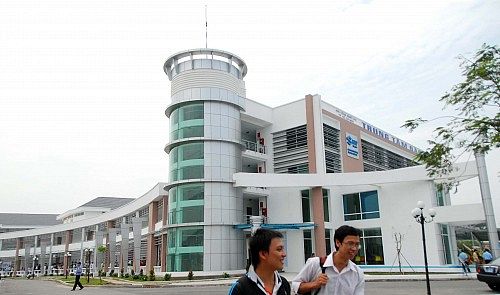Vingroup, Vietnam's largest real estate developer, has begun construction of an automobile production plant in an effort to expand the country's auto industry.
Bloomberg reports that Vingroup broke ground on the factory in Hai Phong on Saturday. The first phase of the plant will cost up to US$1.5 billion, while the conglomerate will pour US$3.5 billion into the project overall.
Vingroup hopes to roll its first car out the factory's doors within 24 months, and the facility will focus on sedans, SUVs and electric cars.
Le Thu Thu Thuy, Vingroup's vice chairwoman, told the news source: "We want to create an affordable and high-quality car for Vietnamese."
Vingroup's car company will be called VINFAST, and the firm plans to hire a CEO with experience at an established international carmaker, in addition to hiring Italian design houses while buying important components like engines from American and European companies, Bloomberg shares.
These goals are ambitious, and experts warn that this will be a challenge. Michel Tosto, head of institutional sales and brokerage at Viet Capital Securities JSC, told the news source: "It [Vingroup] doesn't have the expertise nor the capital for that. It's a highly competitive space dominated by foreign brands."
Toyota currently holds a 23% share of Vietnam's car sector, while Ford accounts for 12% of the market. VINFAST, meanwhile, hopes to produce 500,000 vehicles a year by 2025. They will also build electric scooters, the first of which may hit the streets within one year.
Vingroup's foray into the automobile sector comes at a time when major manufacturers like Toyota and Honda have scaled back production within Vietnam in favor of importing fully built cars, Tuoi Tre reports.
Import duties on Vietnam's car imports have been steadily falling in recent years, and should hit 0% next year, meaning it is often cheaper for car companies to import entire vehicles instead of making them domestically.
This year Toyota stopped assembling its Fortuner SUV in Vinh Phuc province, while Honda also ceased production of its Civic line in the country.
At the same time, domestic demand for automobiles is increasing rapidly, with the country forecast to purchase 900,000 units annually by 2025, the news source shares, while traffic in Vietnam's urban areas is worsening thanks to the flood of new vehicles hitting the road.
[Photo via Tuoi Tre]














